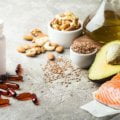At first glance, “seed cycling” apparently includes importing quite snapshots of smoothie bowls to Instagram. These photogenic, seed-protected meals (5000 posts and counting) have a distinctive purpose: They supposedly lead to higher hormonal and menstrual fitness.
By eating flax, pumpkin, sesame, or sunflower seeds at particular times of the month, seed cycling tries to assist with the whole thing from more regular periods to reduced signs and symptoms of PMS. The jury is still out on whether this well-being fashion works as advertised, but there are plenty of different medical motives to feature more seeds in your food regimen. Here’s the deal on all things seed biking:
What is seed biking?
Seed cycling generally includes consuming flax and pumpkin seeds at some point in the primary follicular section (Days 1-14) of your cycle when your period starts. You consume a combination of sesame and sunflower seeds throughout the second luteal segment (Days 14-28) or after ovulation. While there’s no longer plenty by using clinical research on the topic, the health blogosphere generally recommends having a minimum of 1 tablespoon of seeds in line with the day.
What does seed cycling do?
Consuming precise compounds found in seeds throughout your menstrual cycle is meant to establish greater predictable durations and enhance hormone ranges. That’s because seeds comprise fiber known as lignan, also observed in other veggies, fruit, and plant-primarily based protein resources. Eating flax and pumpkin seeds during the primary section of your cycle enhances estrogen manufacturing as your body metabolizes lignan.
In the second segment, the sesame-sunflower seed combination is thought to enhance progesterone through another lignan-related compound known as enterodiol. This theoretically complements the herbal hormonal adjustments throughout the cycle. Typically, women have better estrogen levels at the start of the month and better progesterone levels during the second half of the month.
Does seed cycling work?
No medical studies suggest that seed cycling affects hormone production simultaneously, and even while the research appears promising, there are nonetheless tons to be determined on the topic. Much of the literature has blended effects and might suggest that it’s a personal response rather than a commonplace recommendation that works for every person.
One tablespoon of any food isn’t likely to have an extensive impact when you consider the whole lot else you consume in a day. In other words, although seed biking had a small effect on hormones, it might not translate into a predictable length.
Seeds are one of the most nutrient-dense ingredients you may consume. Adding greater seeds to your day-by-day meals and snacks can have many different health blessings over the years. These nutrient powerhouses comprise minerals that help increase immunity, stabilize blood strain, and support wholesome tissues. They’re filled with coronary heart-healthful unsaturated fats and phytonutrients, which have been related to lowering your risk of persistent ailment danger.
Seeds additionally offer an effective mixture of plant-based fiber and protein. A 1-ounce serving has around 6-9 grams each, depending on the kind! Flax, pumpkin, sesame, sunflower, chia, hemp: The list of excellent-for-you seeds continues. Eat them in salads, soups, smoothies, sautés, or on their personal as a snack.
Should I attempt seed biking?
If trying seed biking helps you individually consume more nutrient-dense seeds, then with the aid of all means, go for it! But obsessing over which seeds to devour and while isn’t worth it slow or energy. Depending on your non-public instances — whether or not you are struggling with fertility, suffering from PCOS signs and symptoms, or just searching out a more ordinary length — you then probably have already got enough pressure on your existence. Remembering when to eat which seed combos may want to add a needless, unsubstantiated mission to feature for your already completed plate.
The Bottom Line
No single meal in isolation can make or wreck your nation of fitness. There’s no medical purpose in investing time, money, or intellectual attempt to ingest certain sorts of seeds during the precise times of the month. Eat the seeds you like great based totally on their flavor and dietary advantages. Most importantly, constantly speak to your OB-GYN about any concerns associated with your duration, fertility, or ordinary health and what answers may paint quality for you.
Jaclyn London, MS, RD, CDN, Good Housekeeping Institute Director, Nutrition Lab A registered dietitian with a Bachelor of Arts diploma from Northwestern University and a Master of Science diploma in Clinical Nutrition from New York University, Jaclyn “Jackie” London handles all of Good Housekeeping’s nutrients-related content material, testing, and assessment.












